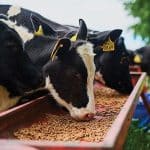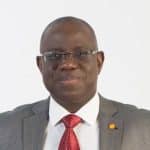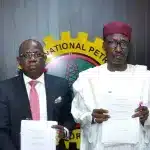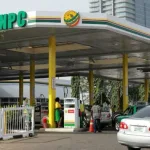Black Market Thrives Amid Fuel Scarcity
The Nigerian National Petroleum Company Limited (NNPCL) promised to end the queues for Premium Motor Spirit (PMS), commonly known as petrol, by mid-week.
However, the black market for PMS thrived on Sunday as the scarcity persisted. Despite the NNPCL’s assurance, petrol scarcity continues to fuel the black market, with vendors selling PMS in jerrycans for as high as N1,500 per litre in some areas.
Join our WhatsApp Channel“We are working on it, and I’m confident the fuel scarcity will be cleared out by Wednesday,” stated Olufemi Soneye, Chief Corporate Communications Officer of NNPC, on Sunday.
Yet, this assurance did little to calm the frustrations of motorists who continued to queue for hours, often leaving empty-handed.
NNPCL Denies $6.8bn Debt Amid Black Market Surge
As the black market flourished, the NNPC faced another challenge—allegations of owing $6.8bn to international oil traders.
Industry watchers cited this debt as a significant reason for the widespread PMS scarcity in Nigeria.
However, the NNPC swiftly denied these claims, maintaining that it does not owe any international trader such a substantial amount.
READ ALSO: Black Market Dollar (USD) To Naira (NGN) Exchange Rate Today, 19th August 2024
“NNPC Ltd does not owe $6.8bn to any international trader(s). In the oil trading business, transactions are carried out on credit, so it is normal to owe at one point or the other,” Soneye clarified in a statement. He added that the NNPCL is actively paying off its obligations on a first-in-first-out basis.
Persistent Scarcity Fuels Black Market Boom
Despite the NNPCL’s reassurances, oil marketers on Sunday reported that the loading of products at depots had yet to improve.
An official from one of the top petroleum companies in Nigeria, who spoke on condition of anonymity, said, “We don’t have supply yet. For us and many depots in Apapa, it’s nil stock.”
The black market vendors, taking advantage of the ongoing crisis, hiked their prices further. In some areas, the price of petrol reached N1,500 per litre, far above the regulated rates.
“The scarcity may get worse in Lagos during the week. Nothing is changing yet,” one marketer disclosed.
Widespread Impact Across Nigeria
The fuel crisis extended beyond Lagos, affecting various states across Nigeria. In Abuja, Nasarawa, and Niger, the queues remained long, with many motorists unable to purchase fuel even at inflated prices.
In Osun State, independent marketers sold petrol for as high as N800 per litre.
Motorists in Edo State faced similar challenges, with prices ranging between N830 and N890 per litre. In Uyo, petrol is sold for between N900 and N950 per litre, further exacerbating transportation costs.
Gombe, Bauchi, and Lafia also reported significant price hikes and long queues, with residents expressing frustration over the situation.
NNPCL’s Assurance Under Scrutiny
As the fuel scarcity drags on, the NNPC’s promise to restore normalcy by mid-week is increasingly under scrutiny.
With the black market flourishing and official supply channels struggling to meet demand, many Nigerians are left wondering when relief will finally come.
The NNPCL continues to urge motorists to avoid panic buying, but with the situation on the ground worsening, the public’s confidence in these assurances is waning.
“We are doing everything possible to resolve this crisis, but it will take time,” Soneye reiterated, though the exact timeline remains uncertain.
Emmanuel Ochayi is a journalist. He is a graduate of the University of Lagos, School of first choice and the nations pride. Emmanuel is keen on exploring writing angles in different areas, including Business, climate change, politics, Education, and others.
- Emmanuel Ochayihttps://www.primebusiness.africa/author/ochayi/
- Emmanuel Ochayihttps://www.primebusiness.africa/author/ochayi/
- Emmanuel Ochayihttps://www.primebusiness.africa/author/ochayi/
- Emmanuel Ochayihttps://www.primebusiness.africa/author/ochayi/



















Follow Us